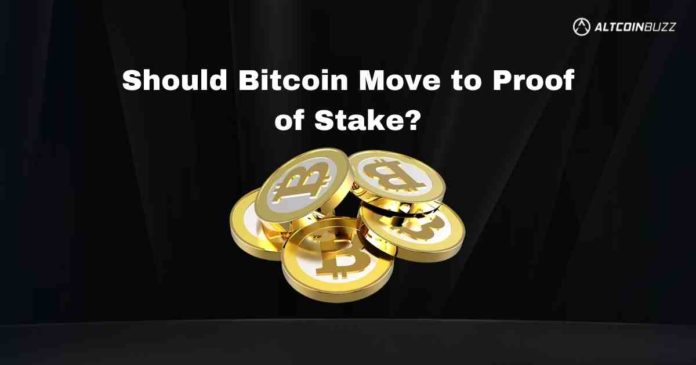A panel at the Oslo Freedom Forum discussed this question earlier this week. Namcios, a Bitcoin researcher and writer for Bitcoin Magazine, wrote a thread about it. He thought that the panel gave one of the best explanations of the value of proof of work ever.
However, the thread has only quotes. We will mention a quote and explain it with a sample. Let’s dig in and see what the panel had to say about Bitcoin.
Source: Pexels Karolina Grabowska
Darin Feinstein Quotes
Darin Feinstein is an entrepreneur and founder of Corescientific. Furthermore, he runs his own charity foundation and a successful restaurant chain.
“Every system that’s existed has been a stakeholder-run system, so they’re all PoS systems.
PoS systems are the legacy systems that existed forever where people that control the coins, the stakeholders, can disrupt the network change it or shut it down.”
Feinstein is saying that the stakeholders ran all previous monetary systems. Because of this, he compares this to the PoS system. The following sample shows how a stakeholder can change the system.
President Richard Nixon decoupled the US dollar from the gold standard in 1971. He did this because of inflation issues, mostly caused by the costly Vietnam War. He also wanted to prevent foreign countries from swapping dollars for gold. This gave an extra burden on the system. It’s also known as the ‘Nixon shock’.
“Bitcoin created a triple-entry [ledger] from the old double-entry [ledger]. This ledger self-audits and writes on-chain. It’s an immutable ledger entry that can never be altered.
That’s the best accounting technology that’s ever been created by humans.”
Feinstein refers here to blockchain technology, whereby the blockchain records all transactions. Once the blockchain records a transaction, you can’t alter it anymore. There’s also no possibility of double-spending. This creates a very high degree of data integrity.
The only way to change data on a blockchain is if you can get hold of a majority of the network hash rate. Now you can start a so-called ‘51% attack‘. However, looking at the size of the Bitcoin network, it’s unlikely that such a 51% attack can succeed. Or as we’ve seen in a few projects, centralized leaders and groups create a hard fork or chain split like ETC v ETH or BCH v BTC.
#Bitcoin 101
Proof of Work (PoW) & Proof of Stake (PoS) are complete OPPOSITES
PoW was invented specifically to solve the historical PoS problem – STAKEHOLDER or FOUNDER corruption, error or censorship
If you say PoW and PoS solve similar problems you understand neither
— Darin Feinstein (@DarinFeinstein) May 27, 2022
Lyn Alden Quotes
Lyn Alden is the founder of the Lyn Alden Investment Strategy. She has a finance/engineering blended background. She’s a very active Bitcoin and macro-economic analyst on Twitter.
“Energy serves a very important role. It minimizes human governance. If you remove the energy component, you’re recreating the legacy system but on a blockchain.”
The PoW mechanism consumes energy to secure the Bitcoin network. Strong computers need to solve challenging mathematical questions. This whole set-up does not need any humans to govern it. Miners only look after the hardware, they are not involved in governance. In other words, she says that when you remove the PoW mechanism, you’re back to a PoS system.
“Basically, PoS relies on circular logic, where the largest coin holders determine the state of the ledger and the state of the ledger determines who the largest coin holders are.
PoS is doing completely different things than what Bitcoin is doing.”
This goes for some PoS set-ups, but not for all of them. There are PoS systems that try to avoid this construction, like DPoS. Nonetheless, if looking at PoS in its purest form, she has a point. The more coins you have, the more power you have over the PoS chain in question.
People from Nigeria, Ethiopia, Senegal, Togo, Venezuela, and Afghanistan keep telling me here in person how they use bitcoin to deal with authoritarian bank control or persistent inflation that continually wrecks their savings.
While westerners on Twitter say it’s useless. pic.twitter.com/ujjhKnCefz
— Lyn Alden (@LynAldenContact) May 24, 2022
Nic Carter Quotes
Nic Carter is a writer and investor with Castle Island Ventures who is a Bitcoin advocate. He appears on podcasts and does conference talks. He also contributes to academic projects.
“PoW allows everyone to decide on the correct ledger state with no human oversight or governance.
PoS is just a fancy way of referring to shareholder governance or a stakeholder-led system where ownership in the system determines authority in the system.”
Carter makes another case of Bitcoin’s decentralized status and immutability. On the other hand, he compares PoS with ownership, as long as you have a stake in the system. This leads to authority, which doesn’t exist in a PoW system.
“That’s how SWIFT works. This is how PayPal works. That’s how banks work. Those are all PoS systems. PoS systems work fine, they just aren’t depoliticized. They don’t allow just anybody to transact.”
“In my view, money should be depoliticized. It should be a right to transact with whomever you want in a private way. And that’s been stripped away from us as we’ve digitized finance.”
He argues that PoS systems are in control of who they allow to transact. In contrast, PoW allows everyone to transact at free will, in private. PoW frees people in making their financial choices. PoS restricts this right.
Invoking the tulip bubble is a tremendous shibboleth. If you do it you are not a serious person and your opinions on finance should be disregarded https://t.co/UXBi0WA6qY
— nic carter (@nic__carter) May 23, 2022
Conclusion
The quotes from the three expert advocates in the panel in the Oslo Freedom Forum are all very much pro-PoW. Now, PoW surely has its benefits, but to simply call anything else PoS is maybe not the way forward. As with everything in life, it’s not always only black and white. There are many gray shades as well, whether we like that or not. However, Bitcoin maxis (or any maxis, for that matter), seem to sometimes forget that. But PoS system designers have to put in more work to manage the system design and incentives to get the best outcomes for all users, not just the highest stakers. PoW does it naturally at its higher energy costs.
⬆️For more cryptocurrency news, check out the Altcoin Buzz YouTube channel.
⬆️Find the most undervalued gems, up-to-date research, and NFT buys with Altcoin Buzz Access. Join us for $99 per month now.





























